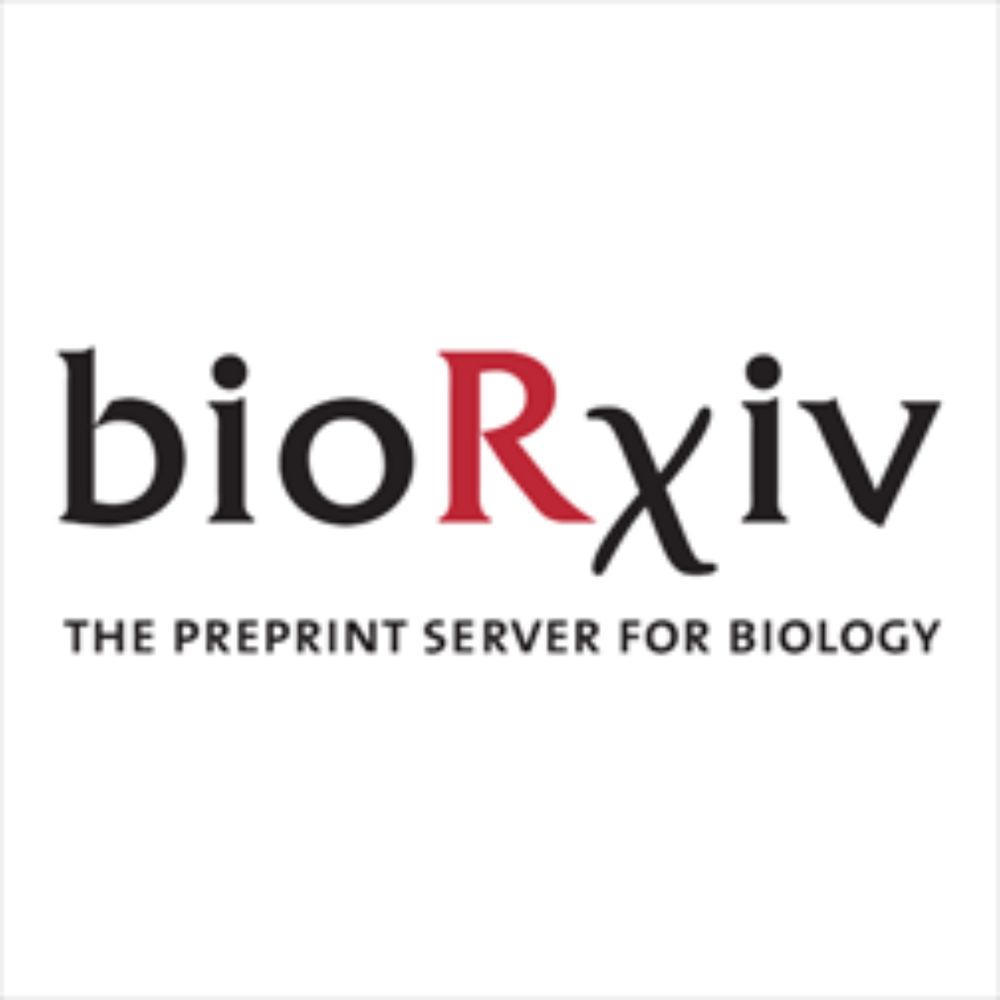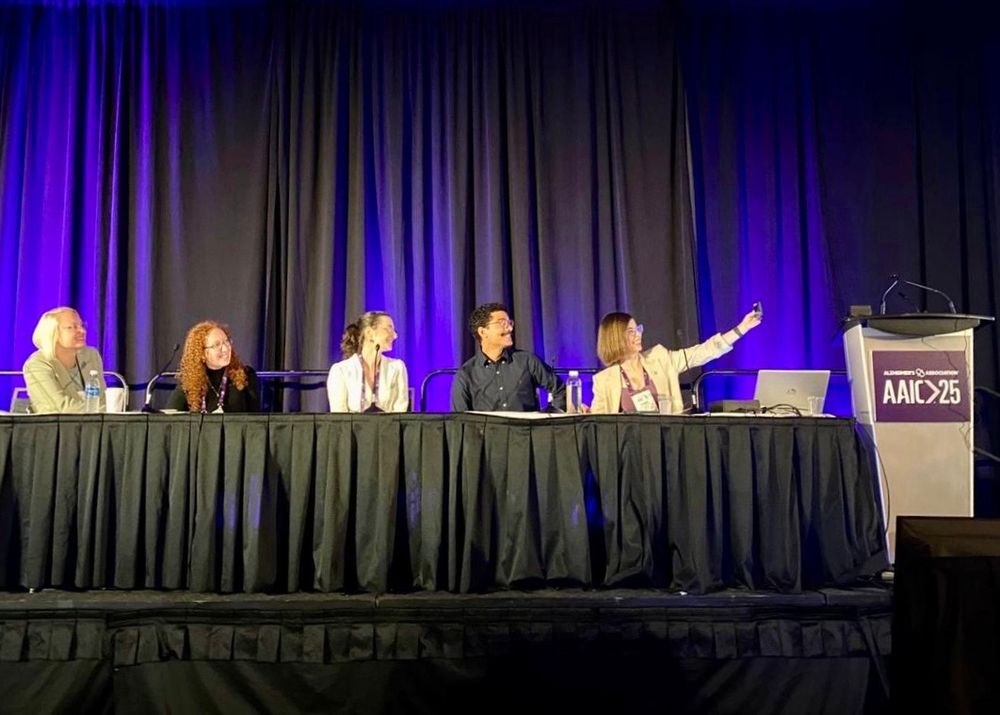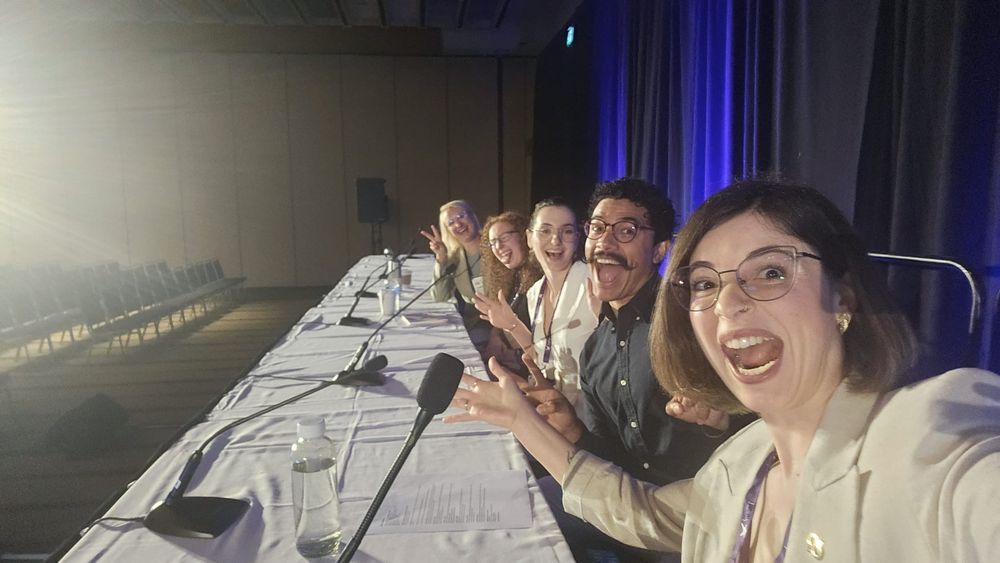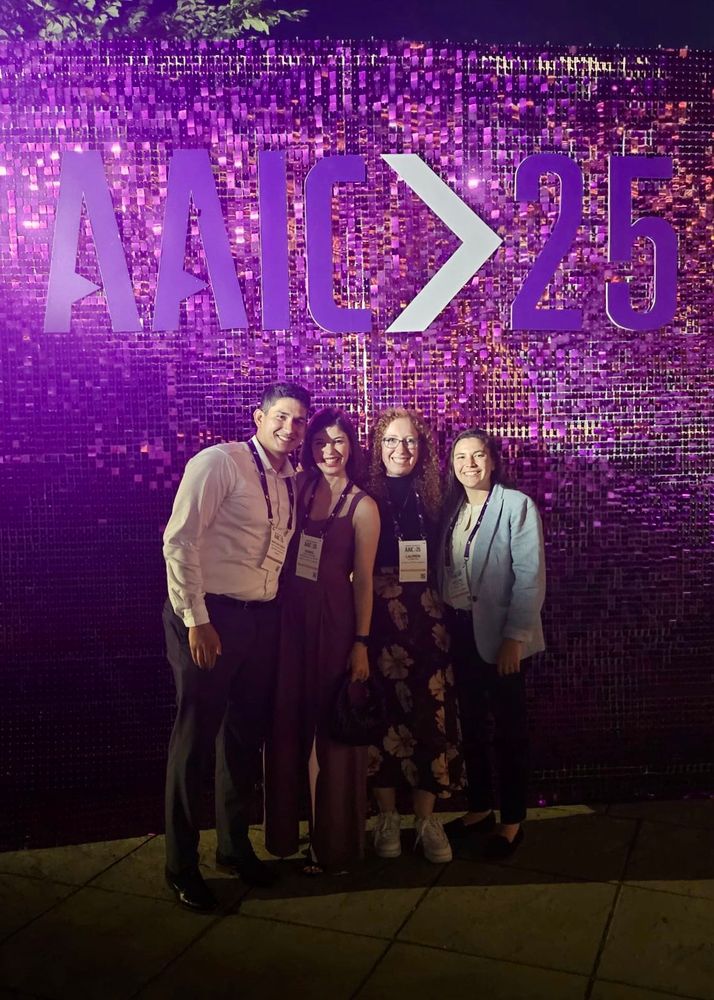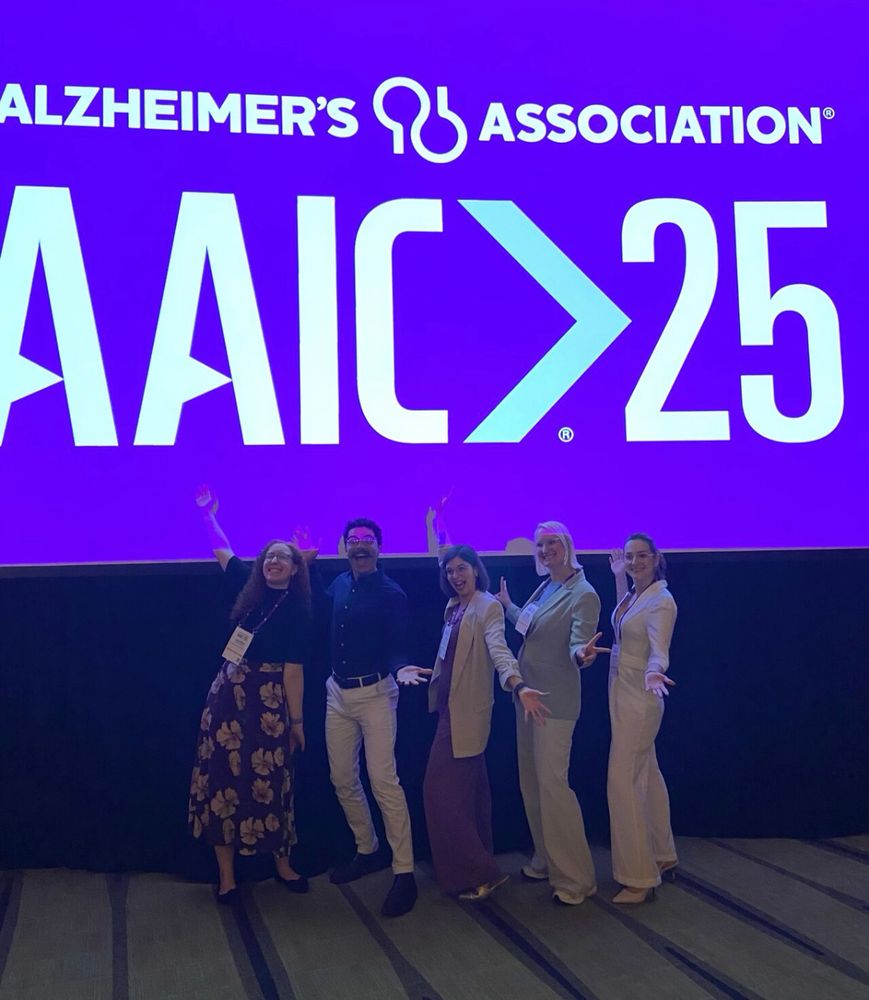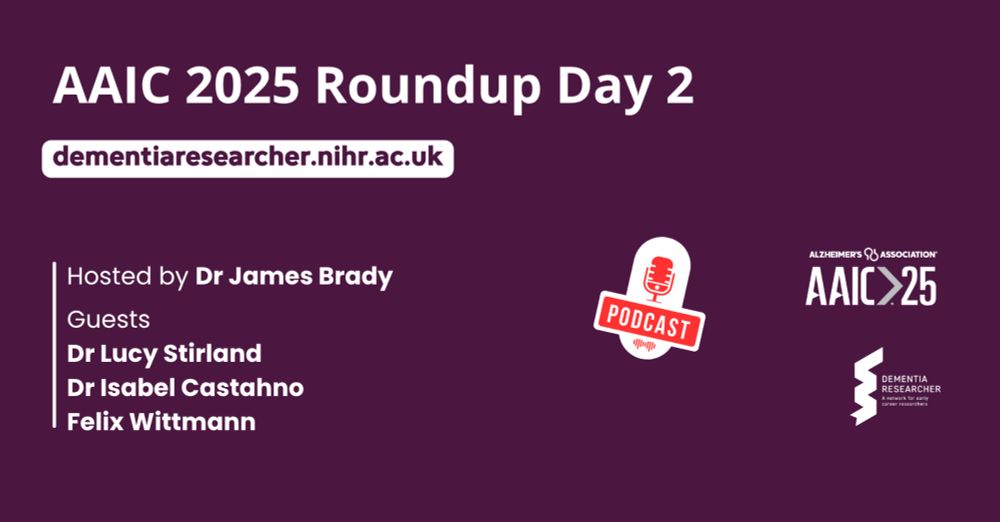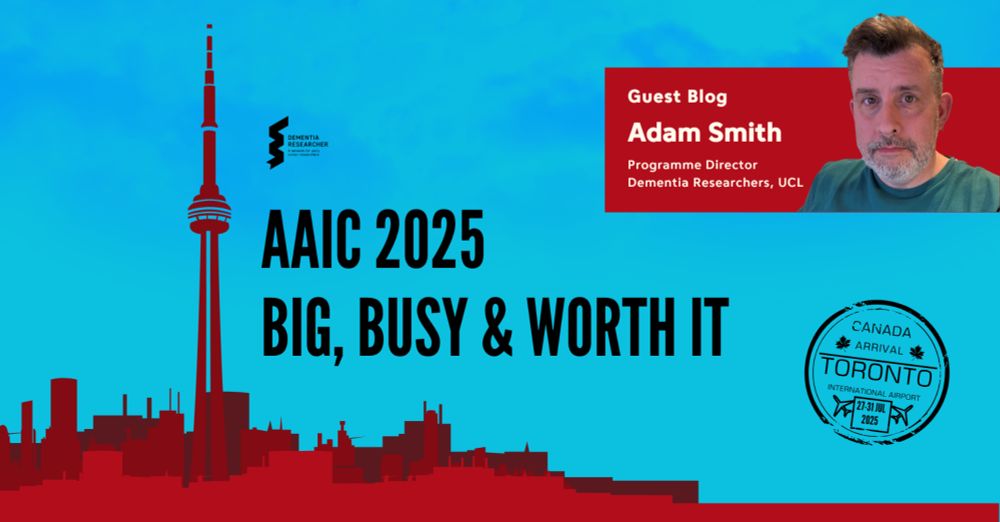🚨Join our next @DEMONNetworkUK #Genetics #Omics meeting next week - THURSDAY 11th December at 2.30 PM (UK Time). Delighted to have @isabelscst.bsky.social as invited speaker – “Molecular hallmarks of excitatory and inhibitory #neuronal #resilience to #Alzheimer’s disease”.
DM for more info!
05.12.2025 17:02 —
👍 1
🔁 1
💬 0
📌 0
The debate on #AI and disparities in research and care took place today. Watch the recording to hear both sides from Dr Isabel Castanho @isabelscst.bsky.social and Dr Eleanor Conole - what do you think?
communities.dementiaresearcher.nihr.ac.uk/c/events/deb...
12.11.2025 22:50 —
👍 1
🔁 1
💬 0
📌 0
Looking forward to this debate! 👇🏻 Join us! 📢
08.11.2025 13:58 —
👍 2
🔁 0
💬 0
📌 0
I am honored to celebrate our publication. I work together with these future leaders in Alzheimer's research. Will AD become a controllable disease? If we can find our natural defensives and make them stronger?
03.10.2025 13:51 —
👍 4
🔁 1
💬 2
📌 0

Molecular hallmarks of excitatory and inhibitory neuronal resilience to Alzheimer’s disease - Molecular Neurodegeneration
Background A significant proportion of individuals maintain cognition despite extensive Alzheimer’s disease (AD) pathology, known as cognitive resilience. Understanding the molecular mechanisms that protect these individuals could reveal therapeutic targets for AD. Methods This study defines molecular and cellular signatures of cognitive resilience by integrating bulk RNA and single-cell transcriptomic data with genetics across multiple brain regions. We analyzed data from the Religious Order Study and the Rush Memory and Aging Project (ROSMAP), including bulk RNA sequencing (n = 631 individuals) and multiregional single-nucleus RNA sequencing (n = 48 individuals). Subjects were categorized into AD, resilient, and control based on β-amyloid and tau pathology, and cognitive status. We identified and prioritized protected cell populations using whole-genome sequencing-derived genetic variants, transcriptomic profiling, and cellular composition. Results Transcriptomics and polygenic risk analysis position resilience as an intermediate AD state. Only GFAP and KLF4 expression distinguished resilience from controls at tissue level, whereas differential expression of genes involved in nucleic acid metabolism and signaling differentiated AD and resilient brains. At the cellular level, resilience was characterized by broad downregulation of LINGO1 expression and reorganization of chaperone pathways, specifically downregulation of Hsp90 and upregulation of Hsp40, Hsp70, and Hsp110 families in excitatory neurons. MEF2C, ATP8B1, and RELN emerged as key markers of resilient neurons. Excitatory neuronal subtypes in the entorhinal cortex (ATP8B+ and MEF2Chigh) exhibited unique resilience signaling through activation of neurotrophin (BDNF-NTRK2, modulated by LINGO1) and angiopoietin (ANGPT2-TEK) pathways. MEF2C+ inhibitory neurons were over-represented in resilient brains, and the expression of genes associated with rare genetic variants revealed vulnerable somatostatin (SST) cortical interneurons that survive in AD resilience. The maintenance of excitatory-inhibitory balance emerges as a key characteristic of resilience. Conclusions We have defined molecular and cellular hallmarks of cognitive resilience, an intermediate state in the AD continuum. Resilience mechanisms include preserved neuronal function, balanced network activity, and activation of neurotrophic survival signaling. Specific excitatory neuronal populations appear to play a central role in mediating cognitive resilience, while a subset of vulnerable interneurons likely provides compensation against AD-associated hyperexcitability. This study offers a framework to leverage natural protective mechanisms to mitigate neurodegeneration and preserve cognition in AD.
'Molecular hallmarks of excitatory and inhibitory neuronal resilience to #AlzheimersDisease'
Isabel Castanho, Pourya Naderi Yeganeh...Rudolph E. Tanzi & Winston Hide @winhide.bsky.social @harvardmed.bsky.social
#CognitiveResilience #transcriptomics #genetics
bit.ly/3VK7k5b
01.10.2025 14:29 —
👍 4
🔁 1
💬 0
📌 0

🧠 Key takeaway: Cognitive resilience hinges on preserving excitatory-inhibitory homeostasis. Specific “surge-protector” neurons control excess firing and shield the cortex even when plaques and tangles are abundant.
01.10.2025 19:45 —
👍 1
🔁 0
💬 0
📌 0

Molecular hallmarks of excitatory and inhibitory neuronal resilience to Alzheimer’s disease - Molecular Neurodegeneration
Background A significant proportion of individuals maintain cognition despite extensive Alzheimer’s disease (AD) pathology, known as cognitive resilience. Understanding the molecular mechanisms that protect these individuals could reveal therapeutic targets for AD. Methods This study defines molecular and cellular signatures of cognitive resilience by integrating bulk RNA and single-cell transcriptomic data with genetics across multiple brain regions. We analyzed data from the Religious Order Study and the Rush Memory and Aging Project (ROSMAP), including bulk RNA sequencing (n = 631 individuals) and multiregional single-nucleus RNA sequencing (n = 48 individuals). Subjects were categorized into AD, resilient, and control based on β-amyloid and tau pathology, and cognitive status. We identified and prioritized protected cell populations using whole-genome sequencing-derived genetic variants, transcriptomic profiling, and cellular composition. Results Transcriptomics and polygenic risk analysis position resilience as an intermediate AD state. Only GFAP and KLF4 expression distinguished resilience from controls at tissue level, whereas differential expression of genes involved in nucleic acid metabolism and signaling differentiated AD and resilient brains. At the cellular level, resilience was characterized by broad downregulation of LINGO1 expression and reorganization of chaperone pathways, specifically downregulation of Hsp90 and upregulation of Hsp40, Hsp70, and Hsp110 families in excitatory neurons. MEF2C, ATP8B1, and RELN emerged as key markers of resilient neurons. Excitatory neuronal subtypes in the entorhinal cortex (ATP8B+ and MEF2Chigh) exhibited unique resilience signaling through activation of neurotrophin (BDNF-NTRK2, modulated by LINGO1) and angiopoietin (ANGPT2-TEK) pathways. MEF2C+ inhibitory neurons were over-represented in resilient brains, and the expression of genes associated with rare genetic variants revealed vulnerable somatostatin (SST) cortical interneurons that survive in AD resilience. The maintenance of excitatory-inhibitory balance emerges as a key characteristic of resilience. Conclusions We have defined molecular and cellular hallmarks of cognitive resilience, an intermediate state in the AD continuum. Resilience mechanisms include preserved neuronal function, balanced network activity, and activation of neurotrophic survival signaling. Specific excitatory neuronal populations appear to play a central role in mediating cognitive resilience, while a subset of vulnerable interneurons likely provides compensation against AD-associated hyperexcitability. This study offers a framework to leverage natural protective mechanisms to mitigate neurodegeneration and preserve cognition in AD.
Thrilled to share that our paper “Molecular hallmarks of excitatory and inhibitory neuronal resilience to Alzheimer’s disease” is now out in Molecular Neurodegeneration!
👉 link.springer.com/article/10.1...
#Alzheimer #Resilience #Neuroscience
01.10.2025 19:45 —
👍 16
🔁 6
💬 1
📌 1
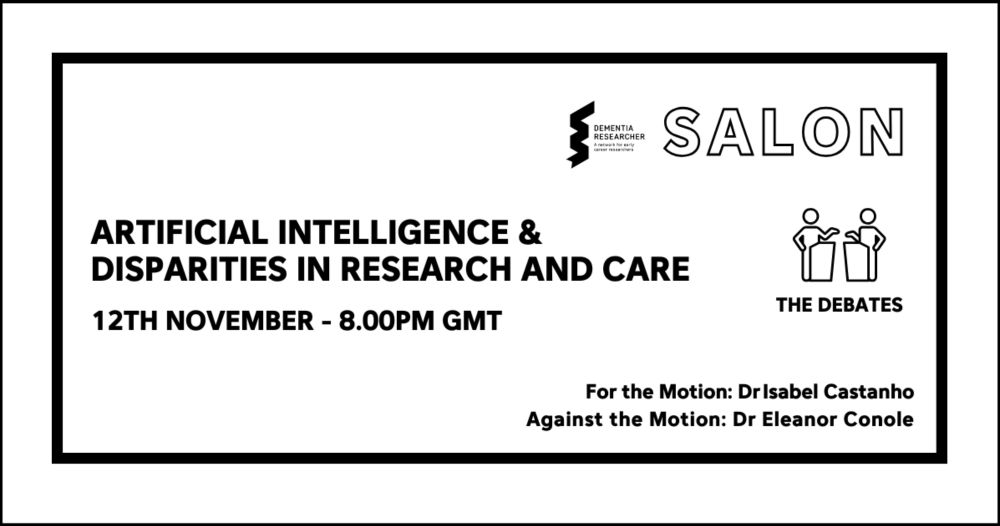
Dementia Researcher Salon Debate - AI and Disparities in Research and Care
Dementia Researcher Salon Debate - AI and Disparities in Research and Care
🤖 Is #AI helping close gaps in research and care, or making disparities worse?
Join @isabelscst.bsky.social & Dr Eleanor Conole for a live debate on 12 Nov at 8pm GMT.
🗳 Vote, question, decide.
communities.dementiaresearcher.nihr.ac.uk/c/events/deb...
16.09.2025 14:08 —
👍 1
🔁 1
💬 0
📌 0
For me what helped me the most was changing my mindset to "What's the worst that can happen? Me not getting the PhD? It's not going to happen, but if it does, I can leave with that! Not worth the price of my physical and mental health!". Still, bloody difficult, though. Keep swimming. Almost there.
05.08.2025 18:02 —
👍 2
🔁 0
💬 0
📌 0
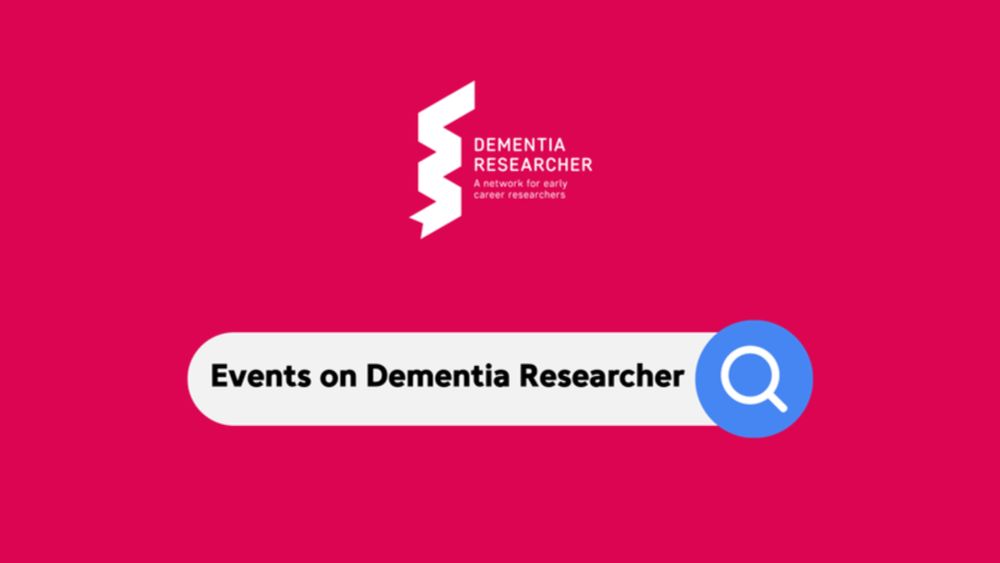
Salon Debates
Dementia Researcher Salon - Debates
We're looking for speakers! This October and November, our Salon Webinars will feature debates on big issues in academic careers and dementia research. Fancy taking part?
🔗 8k3qel8nuxc.typeform.com/SalonDebates
05.08.2025 10:38 —
👍 4
🔁 2
💬 0
📌 0
Thank you to @alzheimersresearchuk.org & @alzheimerssoc.bsky.social for supporting this work.
05.08.2025 13:14 —
👍 3
🔁 1
💬 1
📌 0
🔍 Main findings:
• Tau vs Aβ → pathology-specific DNA methylation remodeling
• Larger effects in the hippocampus
• Convergence with human studies: ANK1, PRDM16, SATB1
• Accelerated epigenetic age with tau accumulation
#Tau #Amyloid #Alzheimer #EndAlz #Epigenetics
05.08.2025 13:12 —
👍 1
🔁 0
💬 1
📌 0
I keep saying that scientists come in all shapes & forms! Even the other day I was telling someone that a few years ago when I was an organizer of @soapboxscience.bsky.social Exeter, I tried to bring in professors & students, of course, but also RAs, core leads, etc. I certainly see you! :)
01.08.2025 13:45 —
👍 1
🔁 0
💬 1
📌 0
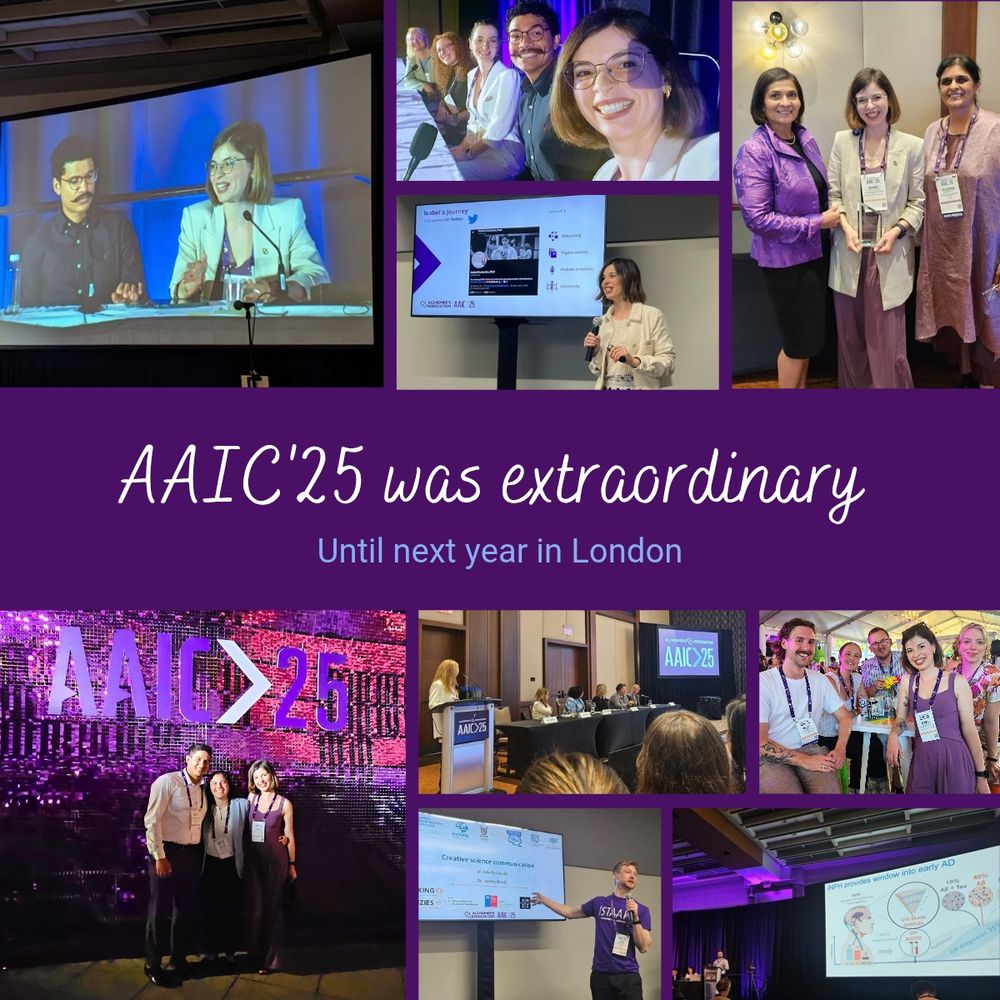
Now that #AAIC25 - the biggest international conference on #Alzheimers & #dementia - ended, I'm still processing all that I experienced, learned, & absorbed this past week. What a week!
Looking forward to London next year, where my story as an @istaart.bsky.social ambassador began 💜
#EndAlz
01.08.2025 12:00 —
👍 8
🔁 1
💬 0
📌 0
US based scientists: Keep writing grants. Keep writing papers. Keep doing research.
Keep on keeping on.
Remember why you do the work you do. ✊🏼 🧪
31.07.2025 17:29 —
👍 64
🔁 7
💬 4
📌 1
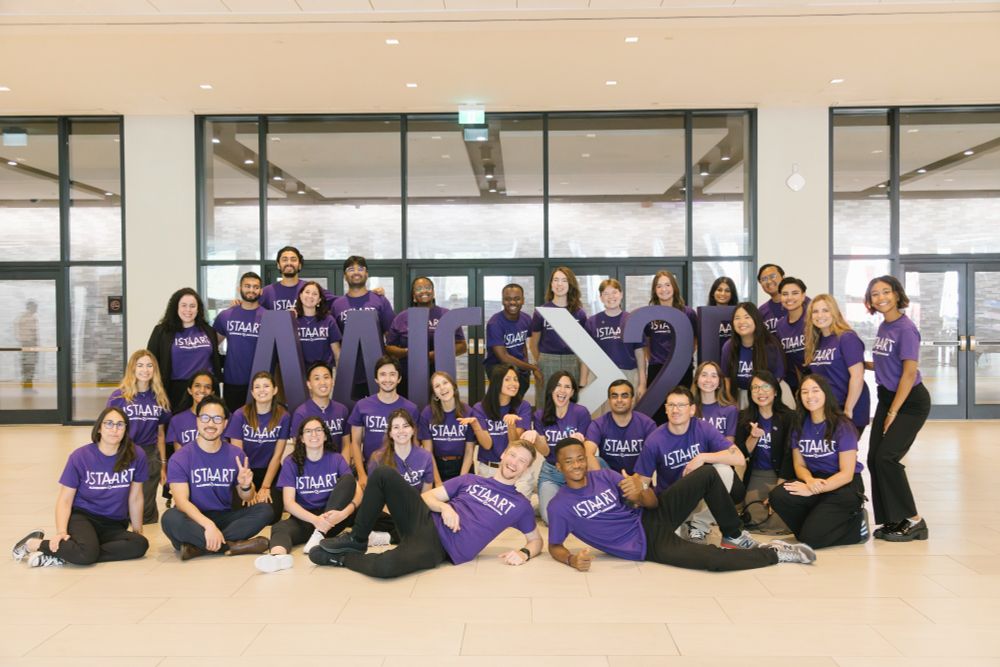
A large group of ISTAART members in matching purple t-shirts stand and sit around large AAIC25 letters, posing for a group picture.
Exclusive offer for #AAIC25 attendees: Join @istaart.bsky.social as a new member during AAIC to receive 10% off membership dues! Stop by the Alzheimer's Association booth in the Exhibit Hall or visit alz.org/ISTAART to join.
30.07.2025 16:24 —
👍 10
🔁 4
💬 0
📌 0
Excited to start my bluesky journey after attending #ISTAART Skills Workshop: Amplifying Your Scientific Profile Through Social Media hosted by @isabelscst.bsky.social, @caitlynfastenau.bsky.social, and Lisa!
#AAIC25
30.07.2025 18:53 —
👍 15
🔁 3
💬 2
📌 0
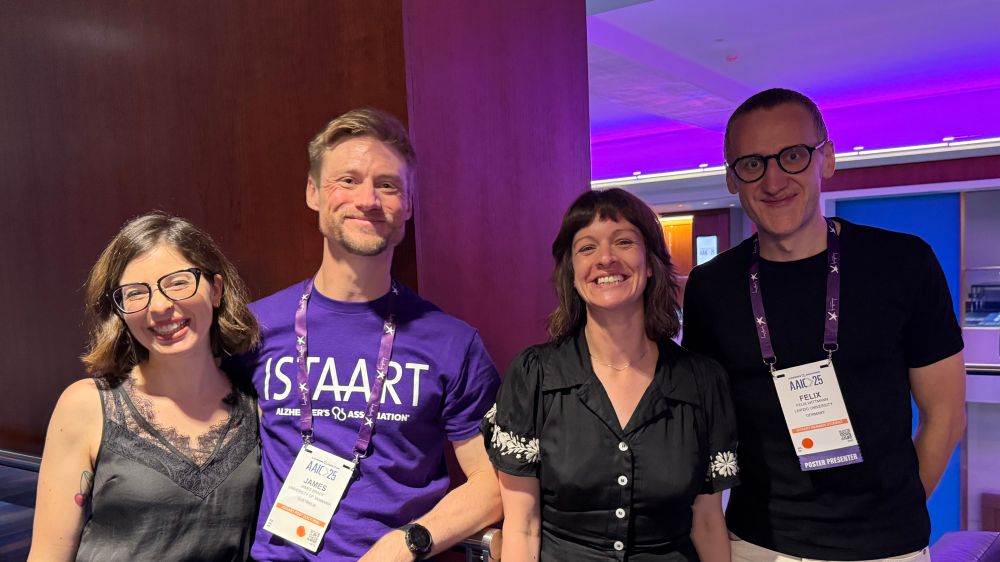
Our second #AAIC25 special is live! Dr James Brady with @stirlandia.bsky.social, @isabelscst.bsky.social & @felixwittmann.bsky.social. Video & audio streaming now.
pod.fo/e/304afe
29.07.2025 13:17 —
👍 10
🔁 5
💬 0
📌 0
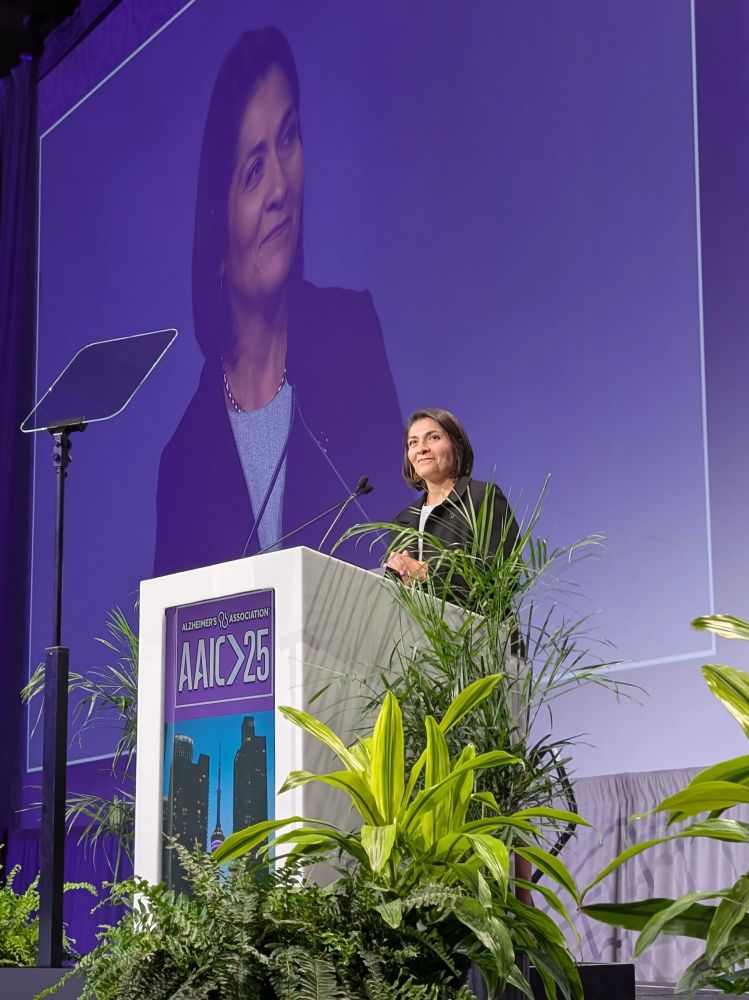
@mariacarrilloalz.bsky.social shares exciting #AAIC25 attendee stats:
🔬 Nearly 8,200 are in Toronto & 3,200+ are online
🔬48% of in-person attendees & 61% of virtual attendees are women
🔬 23% are under age 35
🔬 More than 22% are first-time attendees
🔬More than 70% are @istaart.bsky.social members
28.07.2025 15:20 —
👍 15
🔁 6
💬 0
📌 1
@laurenfish.bsky.social
#TainLuquez
@susanrohde.bsky.social @baldassogabi.bsky.social
28.07.2025 11:13 —
👍 0
🔁 0
💬 0
📌 0
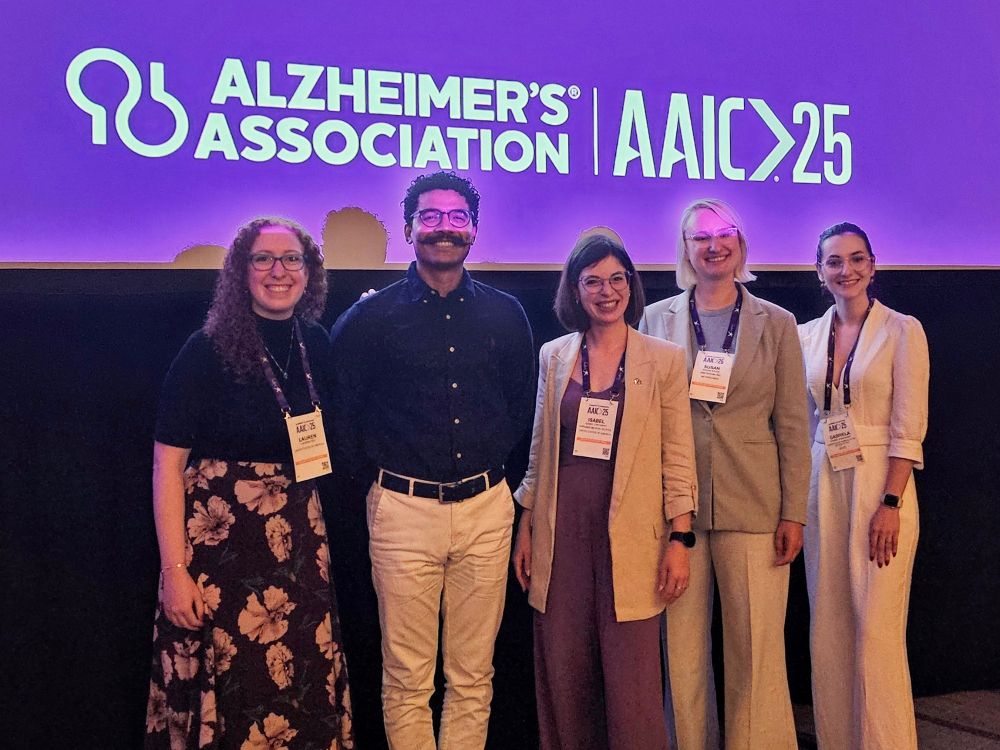
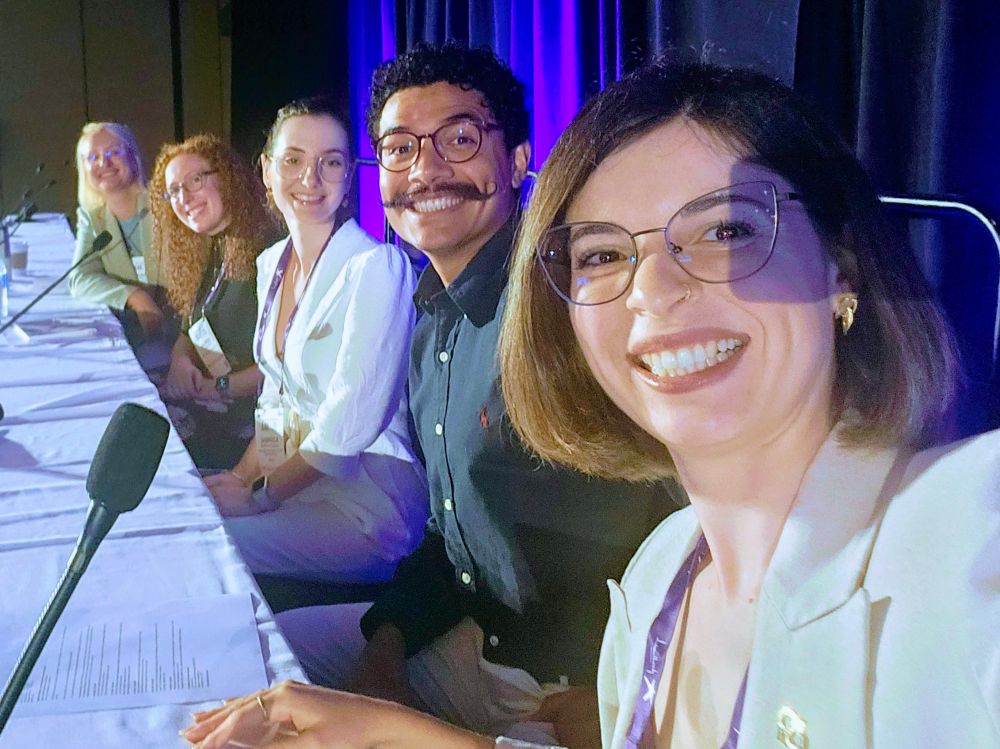
Proud of our session at #AAIC25 yesterday, "Molecular Basis of Cognitive Resilience". 💜
We really are trying to bring the field together, and I think we did a great job! 👏🏻
Thank you to the audience for making the Q&A so stimulating. 🤩
If you missed it, the recording is available online.
28.07.2025 11:13 —
👍 8
🔁 2
💬 1
📌 0
@baldassogabi.bsky.social , the youngest speaker in our session - who just started her PhD - did such a great job at #AAIC25. ⭐ I'm excited to see this superstar's science & career unfold. 🤩 Well done Gabriela 👏🏻
28.07.2025 10:45 —
👍 5
🔁 0
💬 1
📌 0
Have you added the session "Molecular Basis of Cognitive Resilience" to your schedule on the #AAIC25 app yet?
We have a fantastic lineup of speakers! ⭐
See you there? 🤓
25.07.2025 23:11 —
👍 3
🔁 1
💬 0
📌 0
That's the beauty of the virtual #AAIC25 platform 😃 I'm sure you can catch up (or even watch live) online.
And feel free to say hello if you cross paths with me or any of the speakers when you arrive + we're all a friendly bunch!
25.07.2025 23:04 —
👍 3
🔁 0
💬 1
📌 0

